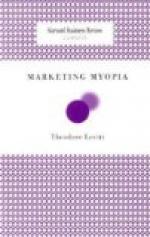Great was the fire which was kindled by Conaire every night, to wit, a “Boar of the Wood.” Seven outlets it had. When a log was cut out of its side every flame that used to come forth at each outlet was as big as the blaze of a burning oratory. There were seventeen of Conaire’s chariots at every door of the house, and by those that were looking from the vessels that great light was clearly seen through the wheels of the chariots.
“Canst thou say, O Fer rogain, what that great light yonder resembles?”
“I cannot liken it to aught,” answers Fer rogain, “unless it be the fire of a king. May God not bring that man there tonight! ’Tis a pity to destroy him!”
“What then deemest thou,” says Ingcel, “of that man’s reign in the land of Erin?”
“Good is his reign,” replied Fer rogain. “Since he assumed the kingship, no cloud has veiled the sun for the space of a day from the middle of spring to the middle of autumn. And not a dewdrop fell from grass till midday, and wind would not touch a beast’s tail until nones. And in his reign, from year’s end to year’s end, no wolf has attacked aught save one bullcalf of each byre; and to maintain this rule there are seven wolves in hostageship at the sidewall in his house, and behind this a further security, even Maclocc, and ’tis he that pleads for them in Conaire’s house. In Conaire’s reign are the three crowns on Erin, namely, crown of corn-ears, and crown of flowers, and crown of oak mast. In his reign, too, each man deems the other’s voice as melodious as the strings of lutes, because of the excellence of the law and the peace and the goodwill prevailing throughout Erin. May God not bring that man there tonight! ’Tis sad to destroy him. ’Tis ’a branch through its blossom,’ ’Tis a swine that falls before mast. ’Tis an infant in age. Sad is the shortness of his life!”
“This was my luck,” says Ingcel, “that he should be there, and there should be one Destruction for another. It were not more grievous to me than my father and my mother and my seven brothers, and the king of my country, whom I gave up to you before coming on the transfer of the rapine.”
“’Tis true, ’tis true!” say the evildoers who were along with the reavers.
The reavers make a start from the Strand of Fuirbthe, and bring a stone for each man to make a cairn; for this was the distinction which at first the Fians made between a “Destruction” and a “Rout.” A pillar-stone they used to plant when there would be a Rout. A cairn, however, they used to make when there would be a Destruction. At this time, then, they made a cairn, for it was a Destruction. Far from the house was this, that they might not be heard or seen therefrom.
For two causes they built their cairn, namely, first, since this was a custom in marauding, and, secondly, that they might find out their losses at the Hostel. Every one that would come safe from it would take his stone from the cairn: thus the stones of those that were slain would be left, and thence they would know their losses. And this is what men skilled in story recount, that for every stone in Carn leca there was one of the reavers killed at the Hostel. From that cairn Leca in Hui Cellaig is so called.




